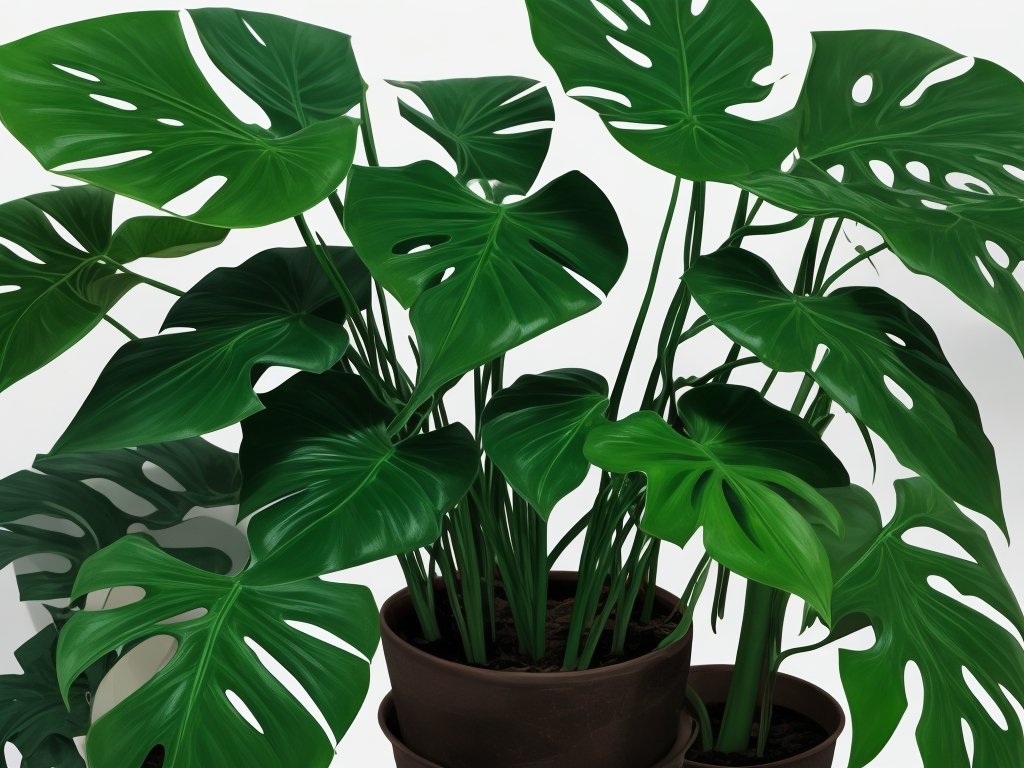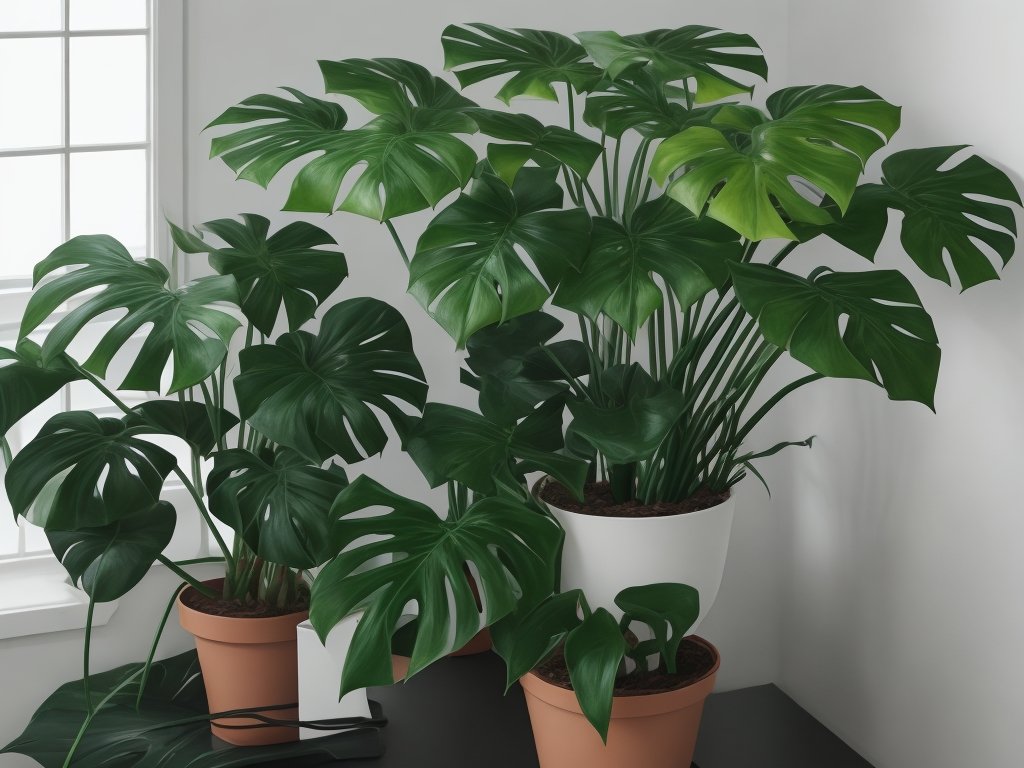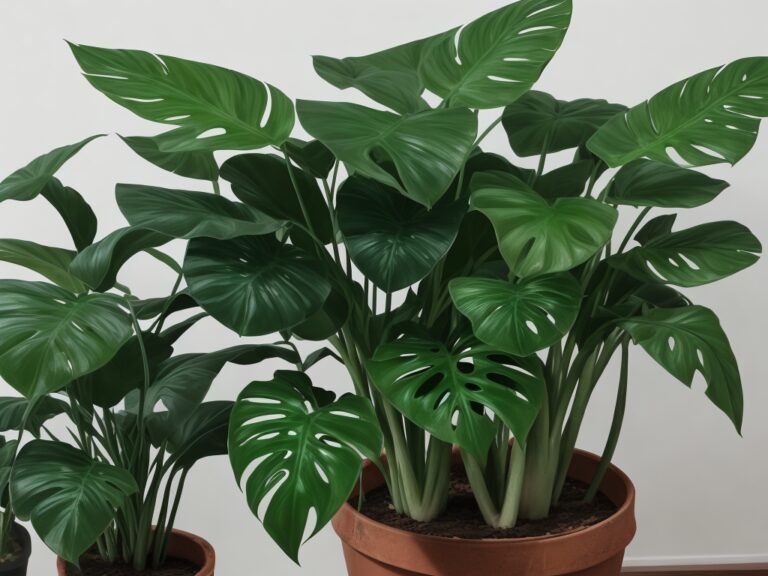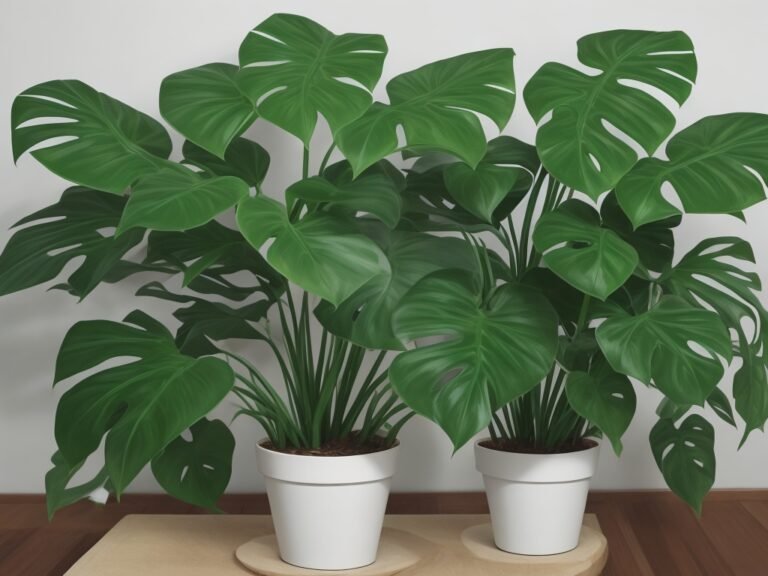Can Monstera Cause Allergies?
Key Takeaways:
- Monstera plants can cause allergies in some individuals, particularly those with sensitive respiratory systems.
- The allergenic properties of monstera are primarily attributed to the presence of calcium oxalate crystals in their leaves, stems, and sap.
- Symptoms of monstera allergies can include skin rashes, itching, respiratory issues, and in severe cases, anaphylaxis.
- Taking precautions such as wearing gloves when handling monstera, keeping the plant well-ventilated, and avoiding direct contact with the sap can help prevent allergic reactions.
Are you a proud plant parent with a Monstera plant in your collection?
Well, brace yourself because we’re about to dive into a topic that might make you reconsider your green companion.
Can Monstera cause allergies?
Yes, that beautiful and popular Monstera plant may be the culprit behind your sniffles and itchiness.
In this article, we’ll explore the different types of allergic reactions that Monstera can trigger, as well as the symptoms to watch out for.
But don’t worry, we’ll also provide you with valuable tips on managing these allergies and even finding alternative plants for those sensitive to Monstera.
So if you’ve been wondering about the potential allergy-inducing powers of your beloved Monstera, keep reading to find out more.
| Question | Answer |
| Can monstera cause allergies? | Yes, monstera can cause allergies in some individuals. |
| Allergen | Calcium oxalate crystals |
| Allergy Symptoms | – Skin irritation or rash – Itchy eyes – Runny nose – Sneezing – Difficulty breathing (in severe cases) |
| Precautions | – Wear gloves when handling monstera – Wash hands thoroughly after contact – Keep monstera plants away from children and pets – Seek medical attention if symptoms are severe |
| Caution | Individuals with a known sensitivity to calcium oxalate crystals should avoid contact with monstera. |
What is Monstera?
Monstera is a popular tropical plant known for its large, glossy leaves and unique, hole-ridden appearance.
It is a versatile and aesthetically pleasing addition to any indoor space.
Description and characteristics of Monstera plant
Monstera plants, also known as Swiss cheese plants, are popular due to their unique and striking appearance.
These plants have large, glossy leaves with distinctive holes and splits, giving them a tropical and exotic look.
Monstera plants are climbers that can grow up to 30 feet in height, with aerial roots that help them attach to trees or structures.
They are native to the rainforests of Central and South America and thrive in moist, well-draining soil.
Monstera plants are relatively low-maintenance and can tolerate a range of lighting conditions, making them a favorite choice among plant enthusiasts.
Popular monstera varieties
There are several popular varieties of Monstera plants that are sought after by indoor plant enthusiasts.
Some of these include:
- Monstera deliciosa: Also known as the Swiss Cheese Plant, this variety has large, glossy, and perforated leaves. It is a popular choice for its unique and tropical appearance.
- Monstera adansonii: Commonly known as the Monkey Mask Plant or Swiss Cheese Vine, this variety has smaller leaves with more intricate perforations. It is a great option for those looking for a trailing plant.
- Monstera obliqua: This variety, also known as the Swiss Cheese Vine, has incredibly delicate and fenestrated leaves. It is considered one of the rarest and most sought-after houseplants, making it a favorite among collectors.
- Monstera standleyana: Also called the Five Holes Plant or the Philodendron Cobra, this variety has leaves with unique-shaped fenestrations resembling holes. It is known for its beautiful vine-like growth habit.
These are just a few of the popular Monstera varieties, each offering its own unique appeal.
Whether you prefer large leaves, intricate perforations, or a trailing growth habit, there’s a Monstera variety out there for you!

Allergies: Causes and Symptoms
Allergies can be caused by various factors and typically manifest through symptoms such as sneezing, itching, and congestion.
Overview of allergies
Allergies occur when the immune system overreacts to substances in the environment.
These substances, known as allergens, can include pollen, dust mites, pet dander, and certain foods.
When exposed to an allergen, the immune system releases chemicals that cause allergy symptoms like sneezing, itching, and congestion.
Allergies vary in severity, and some can even be life-threatening.
Managing allergies involves avoiding triggers and using medications to alleviate symptoms.
Common allergens and their effects on the body
Common allergens, such as pollen, dust mites, pet dander, mold spores, and certain foods, can trigger allergic reactions in the body.
These reactions range from mild symptoms like sneezing and itchy eyes to more severe responses like difficulty breathing and anaphylaxis.
It’s important to identify and avoid exposure to these allergens to manage symptoms effectively.
Allergic Reactions to Monstera
Allergic reactions to Monstera can occur in some individuals. These reactions can vary in severity and may manifest in different ways.
Can monstera cause allergies?
Yes, monstera plants can cause allergies in some individuals.
This is because monstera plants release allergenic proteins that can trigger allergic reactions in sensitive individuals.
These reactions can range from mild symptoms like itching and sneezing to more severe symptoms like difficulty breathing and skin rashes.
It’s important to be aware of these potential allergies if you have monstera plants in your home or garden.
Types of allergic reactions caused by monstera
Monstera can cause various types of allergic reactions, such as contact dermatitis and respiratory symptoms. Contact dermatitis usually leads to skin irritation, redness, itching, and rashes upon direct contact with the plant.
Respiratory symptoms may include sneezing, coughing, nasal congestion, and difficulty breathing when exposed to the plant’s pollen or airborne particles.
Symptoms of monstera allergies
Symptoms of monstera allergies may include skin irritation, such as redness, itching, and rashes, and respiratory problems like sneezing, coughing, and difficulty breathing. Some individuals may also experience watery or itchy eyes, nasal congestion, and even digestive issues like nausea or stomach discomfort.
It’s important to seek medical attention if you suspect you have a monstera allergy.
Understanding Plant Allergens
Plant allergens are substances found in plants that can trigger allergic reactions in sensitive individuals.
These allergens can be present in various parts of the plant such as pollen, leaves, or sap.
What are plant allergens?
Plant allergens are substances found in plants that can trigger allergic reactions in sensitive individuals.
These allergens are typically proteins or chemicals that are released by plants and can be found in their pollens, fruits, leaves, or sap.
When exposed to these allergens, the immune system of susceptible individuals reacts by releasing histamines, leading to symptoms like sneezing, itching, and difficulty breathing.

How do plant allergens trigger allergic reactions?
Plant allergens trigger allergic reactions by entering the body and interacting with the immune system.
When a person with allergies comes into contact with plant allergens, their immune system mistakenly identifies them as harmful substances and releases antibodies to fight them.
This triggers a release of chemicals, such as histamine, which leads to the typical allergy symptoms like sneezing, itching, and congestion.
The severity of the allergic reaction can vary from person to person.

Common plant allergens and their effects
Common plant allergens include pollen, latex, and plant proteins. These substances can trigger allergic reactions in sensitive individuals.
Symptoms may include sneezing, coughing, itching, and skin rashes.
Severe reactions can lead to difficulty breathing, hives, or even anaphylaxis. It’s important to identify and avoid these allergens to prevent allergic reactions.
Managing Monstera Allergies
To manage monstera allergies, focus on prevention tips, treatment options, and identifying and avoiding cross-reactivity with other plants.
Prevention tips for monstera allergies
To prevent monstera allergies, you can:
- Keep monstera plants out of your bedroom or main living areas
- Wear gloves and a mask when handling or pruning the plant
- Wash your hands thoroughly after touching the plant
- Regularly clean your home to remove any pollen or allergens
- Consider using an air purifier to filter out allergens in the air

Treatment options for monstera allergies
The main treatment for monstera allergies involves managing symptoms and avoiding exposure to the allergen.
Over-the-counter antihistamines can help alleviate symptoms like sneezing and itching.
In severe cases, a doctor may prescribe corticosteroids to reduce inflammation.
It’s also important to keep the environment clean and minimize contact with the plant.
Allergy shots (immunotherapy) may be an option for long-term relief.
Frequently Asked Questions about Monstera Allergies
Can monstera allergies develop over time?
Yes, monstera allergies can develop over time. Even if you’ve had no previous allergic reactions to the plant, it’s possible for your immune system to become sensitized to the allergens in monstera over time.
This means that you may start experiencing allergic symptoms, such as itching, sneezing, or skin rashes, when you come into contact with monstera.
It’s important to be aware of any changes in your body’s reaction to monstera and take steps to manage your allergies if necessary.
Are there any alternative plants for individuals with monstera allergies?
Yes, there are several alternative plants for individuals with monstera allergies. Here are a few options:
- Snake Plant (Sansevieria: A popular choice that is known for its air-purifying properties and resilience.
- Spider Plant (Chlorophytum comosum: This plant is easy to care for and helps to clean the air in your home.
- Boston Fern (Nephrolepis exaltata: With its lush foliage, this plant adds a touch of greenery to any space and is relatively low-allergenic.
- Areca Palm (Dypsis lutescens: This tropical plant not only looks beautiful but can also help to improve air quality.
Remember, it’s important to always research and take care of any new plants you bring into your home to ensure they are suitable for your specific allergies.
Final Verdict
While monstera plants are incredibly popular and visually appealing, they can also potentially cause allergies in some individuals. The plant contains allergens that can trigger allergic reactions, ranging from mild to severe symptoms.
Managing monstera allergies involves prevention measures such as keeping the plant away or wearing gloves when handling it, as well as considering alternative plant options for those with severe allergies.
Overall, being aware of the potential for monstera allergies and taking necessary precautions can help ensure a comfortable and enjoyable experience with this beautiful plant.







